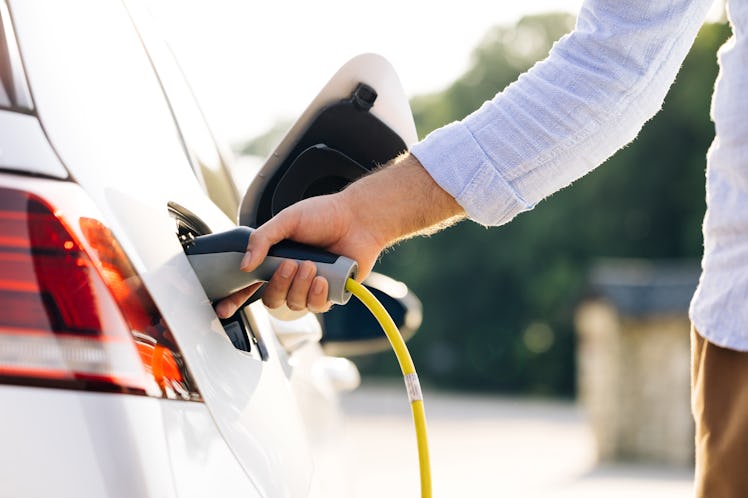Biden Just Paid Nearly $1 Billion To Make EV Charging Easier
President Joe Biden announced the first-round of funding that fuel plans to install electric vehicle (EV) chargers spanning approximately 53,000 miles of highway across the country.

President Joe Biden announced the first round of funding to fuel plans to install electric vehicle (EV) chargers spanning approximately 53,000 miles of highway across the country. The move is part is funded by measures included in the Bipartisan Infrastructure Bill passed last year, and will bolster the country’s plans to increase electric vehicle use by making it easier to “fuel” up on the road.
$7.5 billion was allocated for a national EV charging network along 165,722 miles and covering 49 states plus the District of Columbia in the Bipartisan Infrastructure Act. And now, the administration has announced the first round of funding for the initiative — and they’ve released $900 million in funds to get the plan going.
“I’m pleased to announce that we’re approving funding for the first 35 states, including Michigan, to build their charging infrastructure throughout their state,” Biden said while attending the Detroit Auto Show, per CNBC News.
“You all are going to be part of a network of 500,000 charging stations — 500,000 — across the country, installed by the IBEW,” Biden added, referencing the International Brotherhood of Electrical Workers labor union.
The administration previously stated its plans to complete the network of chargers by 2030. The push toward expanding the country’s use of EVs is being hit on many fronts by the federal government — from the federal tax credits included in the Inflation Reduction Act to states banning the sale of gas cars in a decade.
A May 2022 report indicated that, at that point in time, EVs were cheaper to buy and maintain in nearly every state than a traditional gas-fueled car — even when the sticker price is considerably higher. In addition, new federal subsidies in tax credits are driving prices down even further through the Inflation Reduction Act. The tax benefits offer a $7,500 tax credit for purchasing approved new EVs and a $4,000 credit on used EVs.
Some states are already planning to install more EV charging stations, including Texas, aiming to have a charging station for electric cars every 50 miles along interstate routes. California is set to stop selling new gas-fueled vehicles by 2035, and other states are likely to follow. Also, The United States Postal Service (USPS) announced its plans to replace its fleet with 50% of the vehicles on the road EVs, and school buses are also being electrified, marking a huge disinvestment from fossil fuels by massive federal fleets of vehicles.
A Bloomberg report from earlier this year predicted that a quarter of new car sales will be electric in the country by the end of 2025, on track with the White House's call to have EVs make up half of all the new cars by 2030.
This article was originally published on